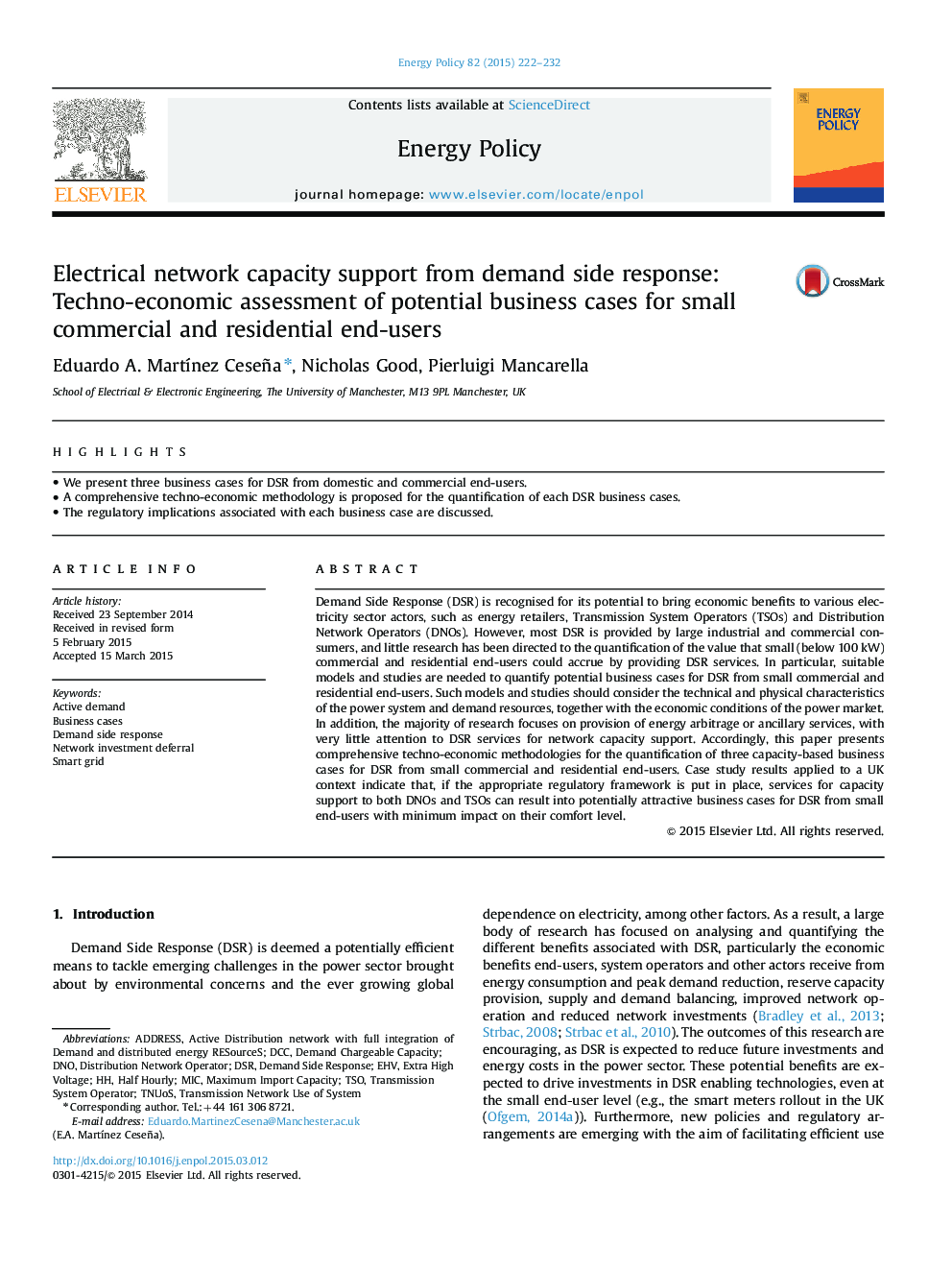| Article ID | Journal | Published Year | Pages | File Type |
|---|---|---|---|---|
| 7400900 | Energy Policy | 2015 | 11 Pages |
Abstract
Demand Side Response (DSR) is recognised for its potential to bring economic benefits to various electricity sector actors, such as energy retailers, Transmission System Operators (TSOs) and Distribution Network Operators (DNOs). However, most DSR is provided by large industrial and commercial consumers, and little research has been directed to the quantification of the value that small (below 100Â kW) commercial and residential end-users could accrue by providing DSR services. In particular, suitable models and studies are needed to quantify potential business cases for DSR from small commercial and residential end-users. Such models and studies should consider the technical and physical characteristics of the power system and demand resources, together with the economic conditions of the power market. In addition, the majority of research focuses on provision of energy arbitrage or ancillary services, with very little attention to DSR services for network capacity support. Accordingly, this paper presents comprehensive techno-economic methodologies for the quantification of three capacity-based business cases for DSR from small commercial and residential end-users. Case study results applied to a UK context indicate that, if the appropriate regulatory framework is put in place, services for capacity support to both DNOs and TSOs can result into potentially attractive business cases for DSR from small end-users with minimum impact on their comfort level.
Keywords
Related Topics
Physical Sciences and Engineering
Energy
Energy Engineering and Power Technology
Authors
Eduardo A. MartÃnez Ceseña, Nicholas Good, Pierluigi Mancarella,
